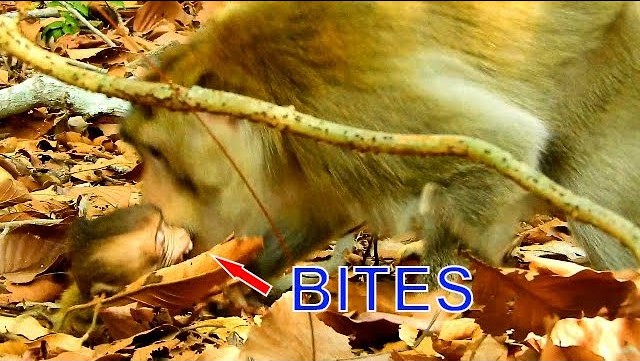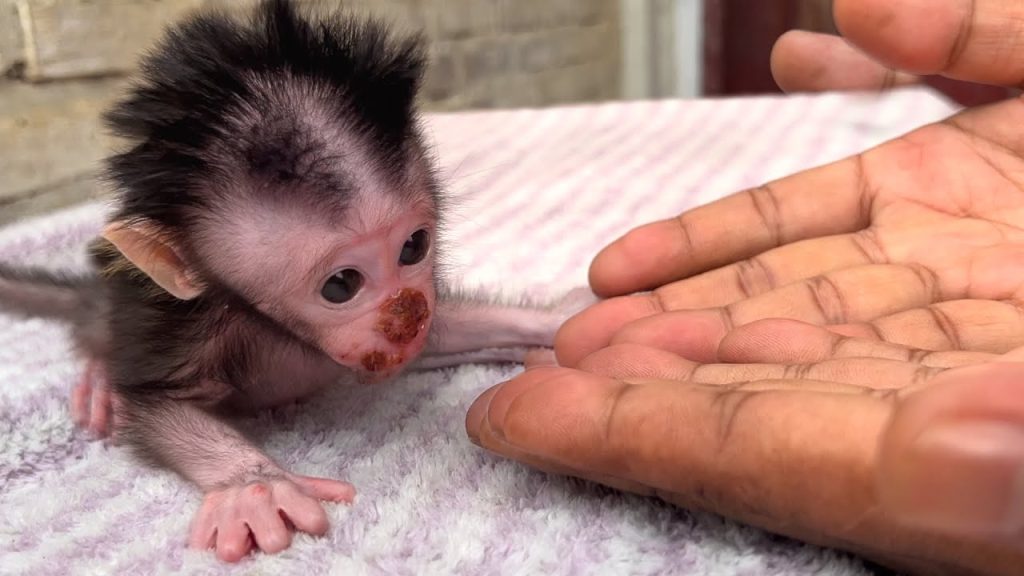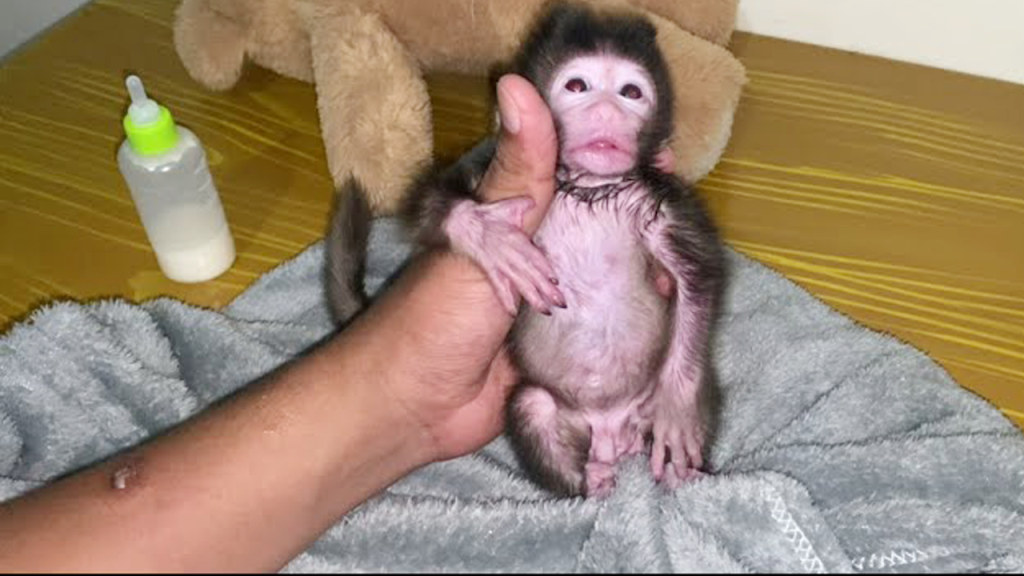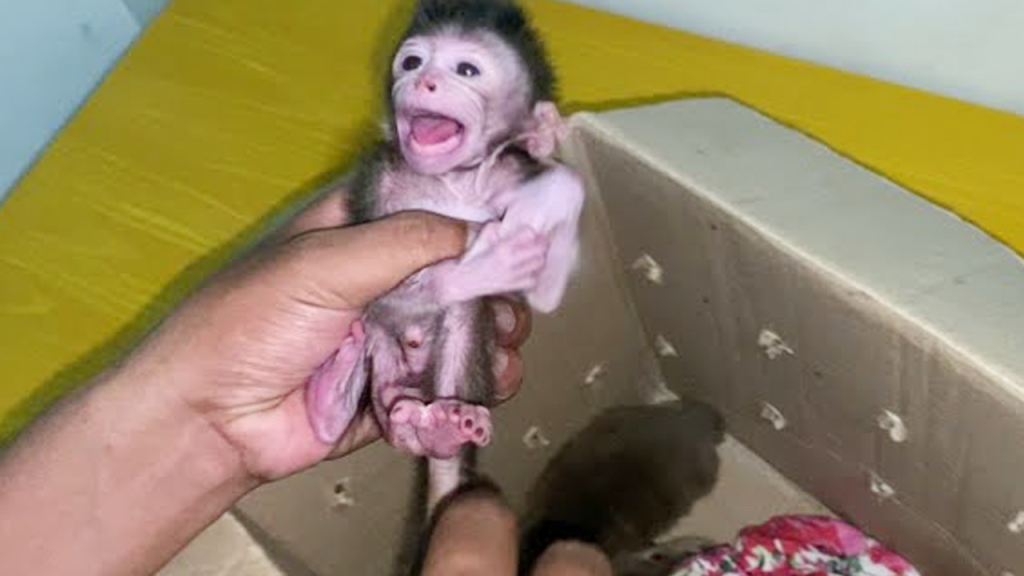
In the wild, danger can strike without warning—especially for the youngest members of a monkey troop. Such was the case when a large, dominant male set his sights on a small, defenseless baby monkey. The encounter was sudden, frightening, and a stark reminder of the challenges young primates face every day.
The baby was playing near its mother, clinging to a low branch and exploring with curiosity. Its tiny hands gripped the bark as it practiced moving about, unaware of the threat lurking nearby. The big male had been watching from a distance, his sharp eyes locked on the baby. Whether driven by aggression, competition, or a sudden flash of dominance, he moved toward the youngster with alarming speed.
The moment the male approached, the baby froze. Instinct told it to run, but the sheer size and speed of the attacker left little chance for escape. In an instant, the male grabbed the baby, his powerful hands wrapping around its small body. The baby let out a high-pitched cry—a sound of pure fear that echoed through the forest.
Nearby troop members reacted immediately. The baby’s mother screamed in distress, rushing forward to intervene. Some other monkeys joined in, leaping between branches and calling loudly, trying to distract the aggressor. Their voices created a wave of sound through the canopy, a warning to all within earshot that something was terribly wrong.
The male, however, held his ground for a tense few moments. His posture was rigid, his eyes alert. Aggressive acts like this can happen for many reasons in primate societies—sometimes as a way to display dominance, sometimes to assert control over females, or even to target the offspring of rivals. Whatever the cause, it placed the baby’s life in immediate danger.
Fortunately, the combined pressure from the mother and other troop members finally forced the male to release his grip. The baby tumbled to the ground, shaken but alive. Quickly, the mother scooped up her infant, holding it tightly to her chest. Her fur bristled with adrenaline, and her protective gaze never left the male until she had retreated to a safe distance.
The baby clung to her as if glued, still trembling from the ordeal. Its cries gradually softened into quiet whimpers as it buried its face in her fur. Grooming and gentle touches from the mother helped calm the little one, restoring a sense of safety after the terrifying event.
Such moments are a reminder that life in the wild is not just about survival against predators—it’s also about navigating the dangers that can come from within the troop itself. Young monkeys must learn quickly who they can trust and when to keep their distance, while mothers remain ever-vigilant to protect them from harm.
In this case, the baby survived, but the fear in its eyes and the tightness of its grip told a clear story: the jungle can be as dangerous as it is beautiful, and every day is a fight to stay safe.


